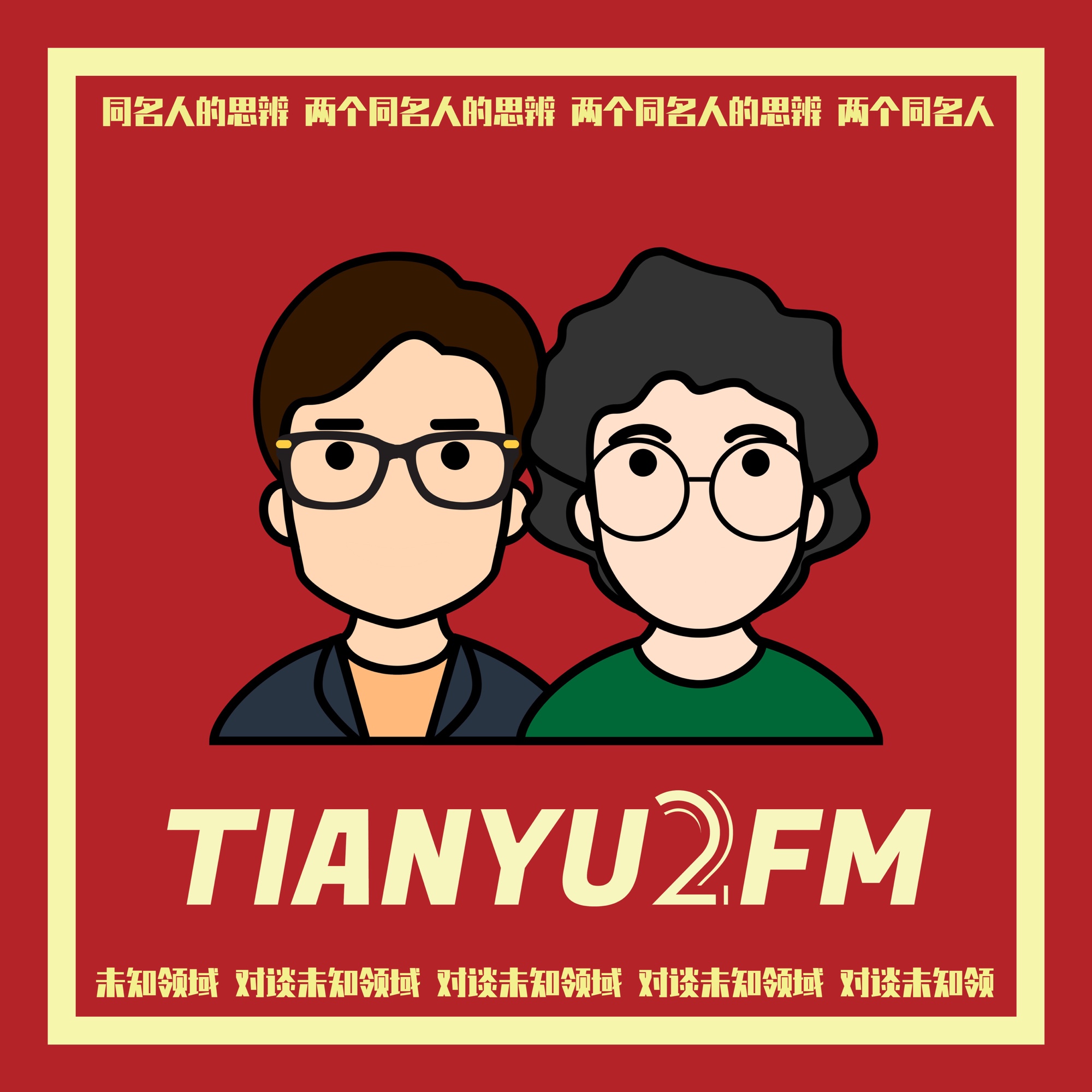
Deep Dive
What is the ultimate goal of AI models in terms of creating a 'world model'?
The ultimate goal of AI models is to create a 'world model' that can generate highly realistic videos simulating real-world physical laws. This virtual world can then be used to gain infinite knowledge about the real world, which can be fed back into the model to enhance its understanding of the world.
How might AI models be used in warfare according to the discussion?
AI models could be used in warfare to the extent that soldiers might no longer carry traditional weapons but instead operate computers to eliminate targets. For example, drones equipped with AI algorithms could autonomously target and neutralize threats, making warfare more technology-driven and less reliant on human physicality.
What are the implications of AI's inherent values on global culture?
AI's values, which are influenced by the companies and engineers who develop them, could accelerate the 'McDonaldization' or 'Americanization' of the world. This means that AI content could increasingly reflect the cultural and ideological biases of its creators, potentially homogenizing global culture.
What challenges do AI models face in terms of data quality and quantity?
AI models face challenges in both the quality and quantity of data. High-quality data is essential for training effective models, but the internet's vast amount of low-quality data complicates this. Additionally, the exponential growth of data required for advanced models like GPT-4 is becoming increasingly difficult to sustain, as the internet's high-quality text data grows only linearly.
How is the AI industry addressing the issue of data quality?
The AI industry is addressing data quality through methods like 'Human and Model in the Loop,' where humans evaluate and select the best responses generated by AI models. This approach helps refine the data used for training, ensuring that the models learn from high-quality, human-preferred outputs.
What is the potential impact of video generation models on the future of AI?
Video generation models are expected to have a significant impact on AI's future, potentially leading to a major breakthrough. These models could be used to create highly realistic videos that simulate real-world physics, effectively serving as a 'world model.' This could revolutionize fields like autonomous driving by generating vast amounts of training data for rare scenarios.
How might AI-generated content affect scientific research?
AI-generated content could complicate scientific research by making it harder to distinguish between real and fabricated data. While replication of experiments is a standard method to verify results, the increasing complexity of experiments and the potential for AI-generated data to be indistinguishable from real data could pose significant challenges to scientific integrity.
What role does energy consumption play in the development of AI models?
Energy consumption is a critical factor in AI development, especially as models become more complex and require more computational power. While the internet already consumes significant energy, AI models, particularly those generating videos, demand exponentially more resources. However, ongoing research aims to make these models more energy-efficient, reducing their overall impact.
How does the competition between the US and China in AI development differ?
The US and China differ in their AI development strategies, with the US having an advantage in computational power and access to high-quality English data, while China benefits from a large, cost-effective engineering workforce. China's centralized approach allows for the development of models that can be widely used across industries, whereas the US's decentralized model leads to more fragmented development.
What are the ethical implications of using AI in predictive policing?
The use of AI in predictive policing raises significant ethical concerns, particularly regarding privacy and the potential for bias. AI models can predict behaviors, such as criminal activity or medical emergencies, but this capability also risks misuse, such as preemptive law enforcement actions based on flawed predictions. The technology's deployment must be carefully regulated to prevent abuses.
- AI 模型在一定阶段呈现指数级增长,但之后收益递减。
- 数据量和数据质量对模型提升至关重要,高质量数据对模型性能的影响远超数据量。
- 模型的进步依赖于算力、数据量和数据质量的综合提升,目前高质量数据的获取是瓶颈。
Shownotes Transcript
林之秋回归做客!人工智能暂时平静的水面之下正在孕育着新一轮的颠覆?
距离我们上次聊AI前沿的话题又已经过去了将近一年。引用一周前马斯克在ALL-IN峰会上说的一句话: “AI进化的速度,远远超越了任何其他现存的技术 (the rate of AI improvement is faster than any other technology by far)。“
一方面,ChatGPT发布才仅仅不到两年,AI已经光速融入到了几乎每一个主流APP,以及我们生活中的各个角落。
但另一方面,随着前两天ChatGPT的最新模型o1的上线,相信你也有意识到,普通用户们似乎也逐渐的在对AI的更新与新闻变得麻木。似乎AI的更新迭代对我们生活的直接影响在逐渐变小。
可事实真的是这样吗?从前沿AI科学家的视角,AI未来的发展是会逐渐趋于小规模进步,还是暂时平静的水面之下正在孕育着新一轮的颠覆能量?
本期节目,我们再次的老朋友,被大家称为TIANYU2FM“第三位主播”的AI科学家林之秋再次回归,来和我们一起聊聊AI接下来将会如何发展?
林之秋
卡内基梅隆大学计算机科学博士生
17岁考入康奈尔大学,仅用两年时间就修完计算机和数学双专业,并从大二开始为康奈尔科技学院编写硕士生的预修课程,给博士生的试卷打分
2020年,林之秋获得了被称作计算机视觉奥斯卡的CVPR最佳论文的提名,是唯一的本科生获提名者,这也成了当时学术圈的一个现象级的新闻
今年,林之秋也与Adobe合作开发视频生成的AI模型,拥有科研和商业一线全面的视角
在本期你会听到:
在本期内容里,我们从AI的智能是否还会继续指数型发展聊起,聊到了是什么在制约如今AI的发展,AI前沿在尝试创造的世界模型是什么?我们是不是生活在虚拟世界里?视频生成模型什么时候会爆发?而这轮爆发又将对我们的世界带来哪些影响?AI是否可以被使用在战争之中?AI又将在中美竞争博弈中承担什么样的角色?产生怎样的影响等等话题!
这次对话让我再一次感觉到AI这项技术似乎还远没有完全苏醒,相信之秋的视角也会对你有所帮助!那就请你扶稳坐好,来和我们一起加入这场对话吧!
结语
天域:这期结尾有个很好玩的彩蛋,先别急着关掉。在这期节目录制开始的时候,之秋推荐我们尝试一下一个AI作曲的平台叫SUNO AI,我们就干脆把这个体验过程录下来了,结果意外地好笑。
请假
国庆假期这周我们想让团队的伙伴们歇一歇,所以原定于10月3日早上更新的下期节目,我们决定延期一周,也就是10月10日早上和大家见面!
本期节目制作
王一山(制片人)
在洋(节目剪辑)
Alan(节目运营)
TIANYU2FM的理念:每期对谈有价值的声音
我们是天宇和天域,是挚友,也是一起求知的伙伴。这是一档为了开拓眼界,走出自我局限而设立的播客,我们通过与人的对谈来与未知的领域及知识互动。
主持人简介
天宇 | 大白(声调偏低):从事中日流行文化与媒介研究(文章见于澎湃新闻私家历史、网易新闻历史频道等)
天域 | 杰激(声调偏高):服装电商公司创始人、UnDeR20合伙人(小红书:李天域 Jack))
视频播客
TIANYU2FM视频播客现已上线!
请在B站 / Youtube 搜索TIANYU2FM找到我们!(比音频版更新晚一周左右)
TIANYU2FM听友群
欢迎你加入TIANYU2FM听友群,和我们一起直接聊天。
请在WX搜索同名ID:TIANYU2FM,并且备注:来聊天。记得不是公众号,而是添加好友。
欢迎关注我们的微博、twitter以及收藏我们的网站以看到更多日常信息以及节目更新提醒!
Weibo: @tianyu2fm
Twitter: @tianyu2fm
Bilibili:tianyu2fm
网址: tianyu2.fireside.fm)